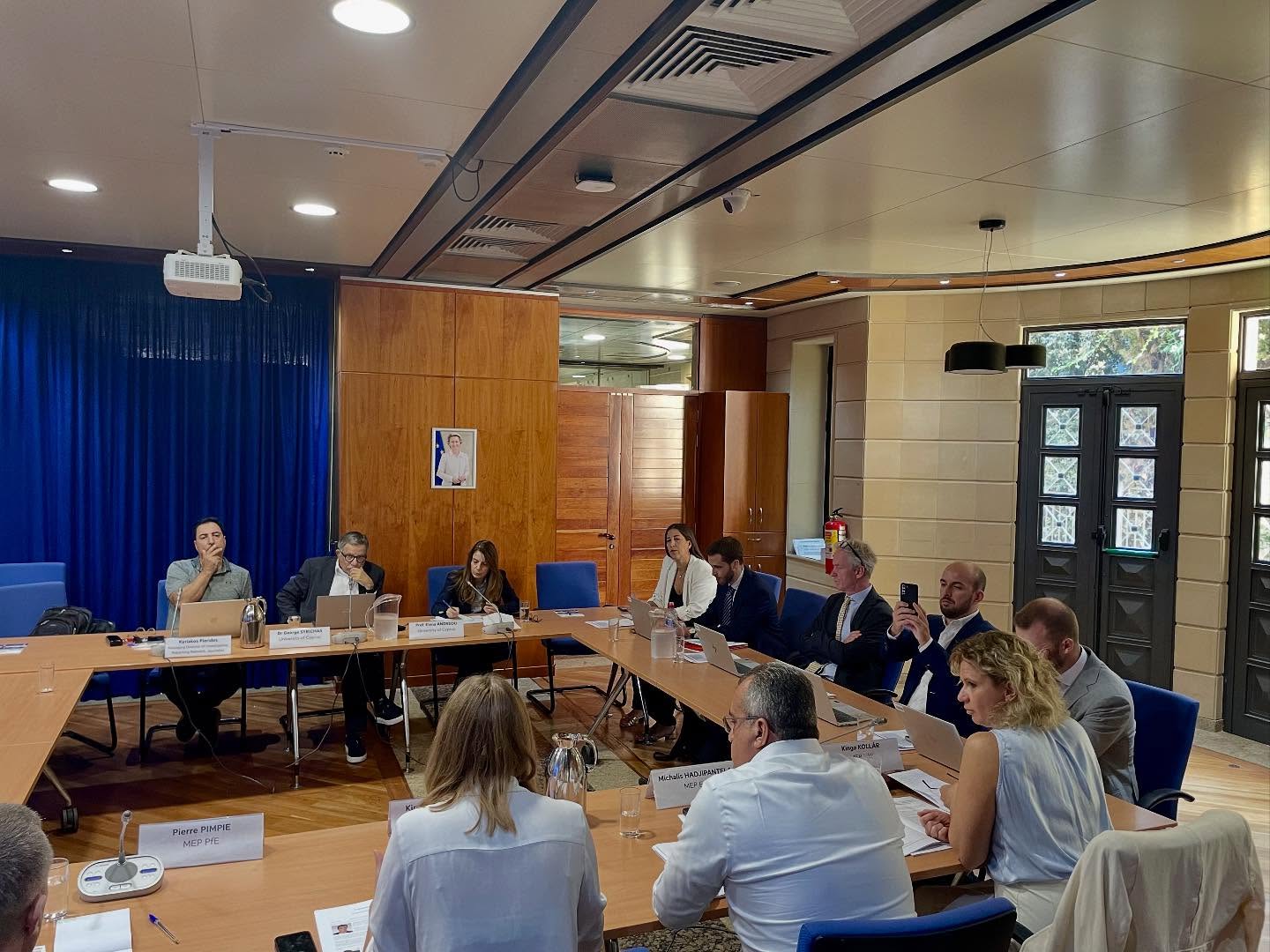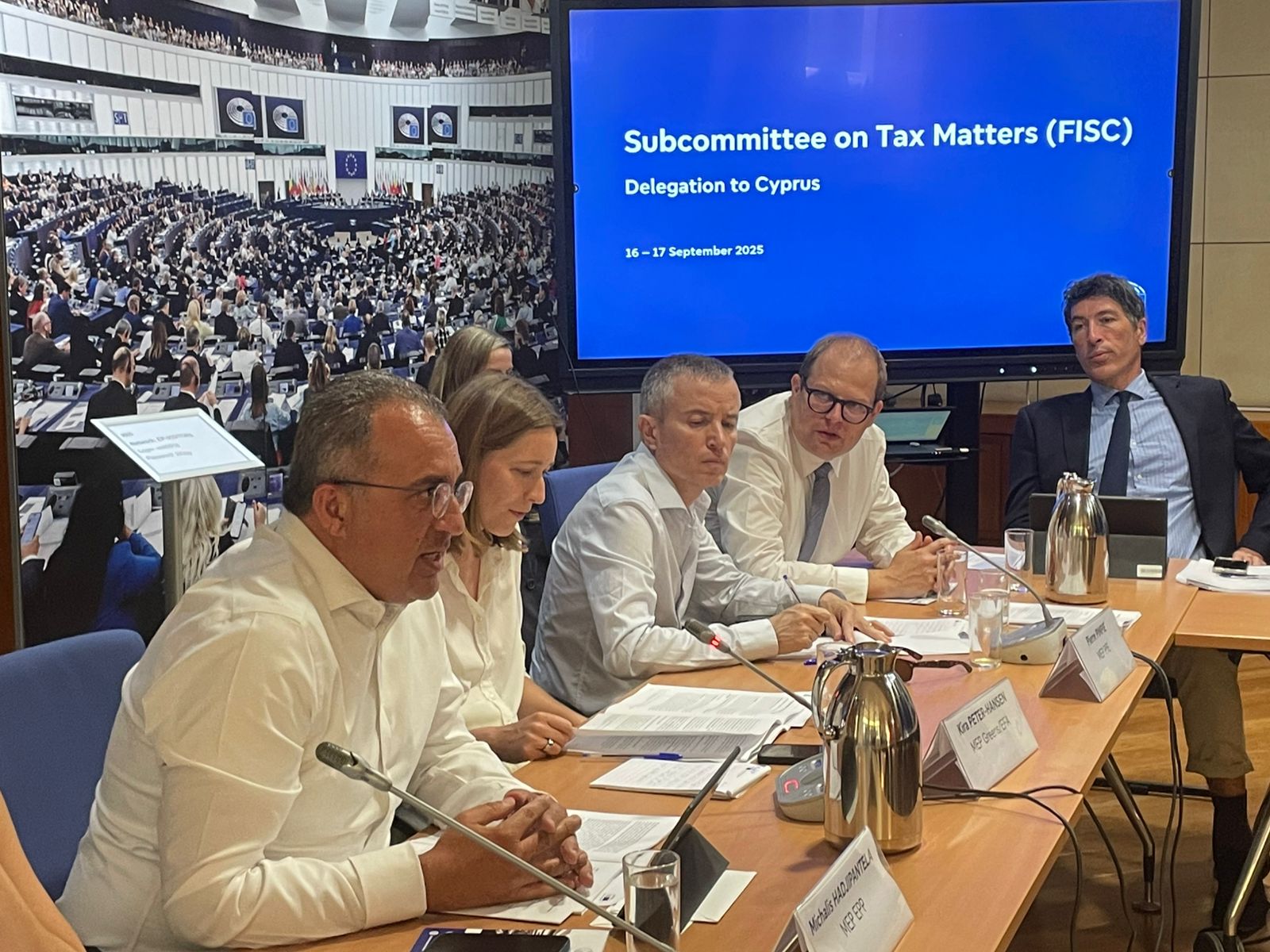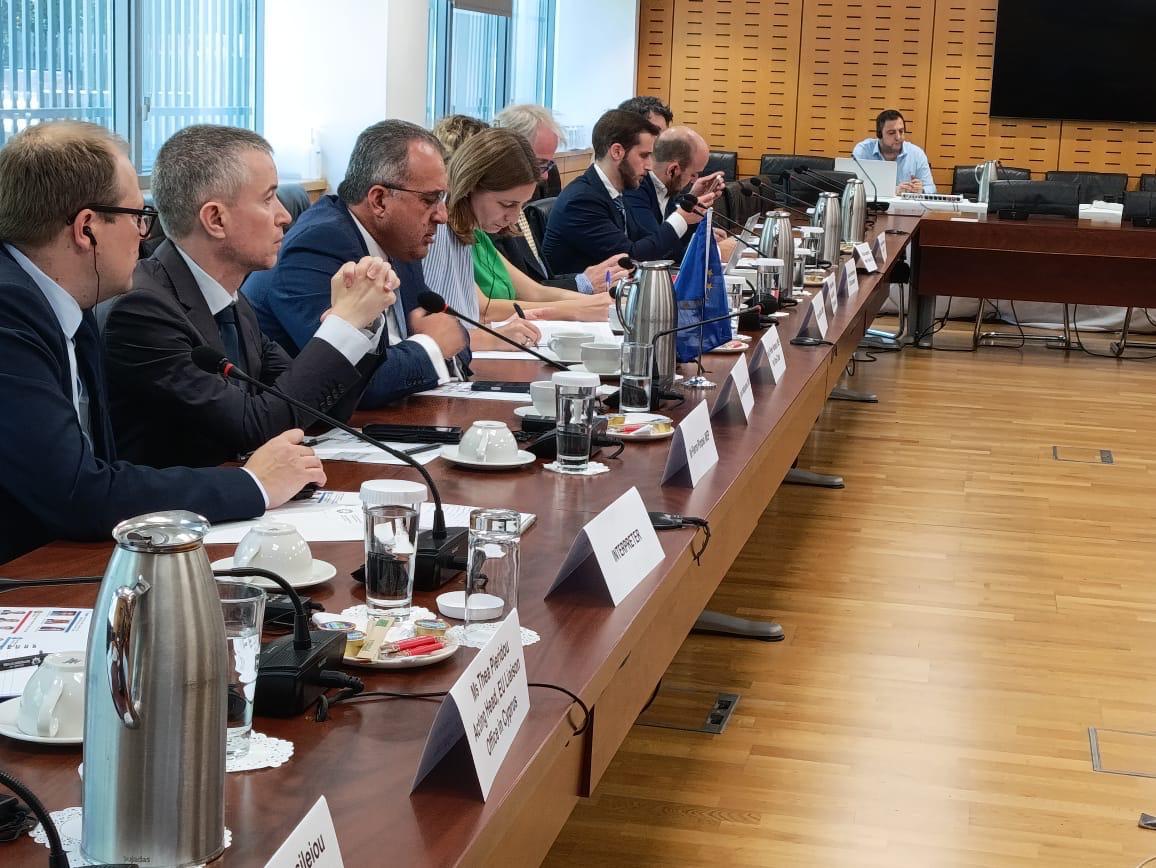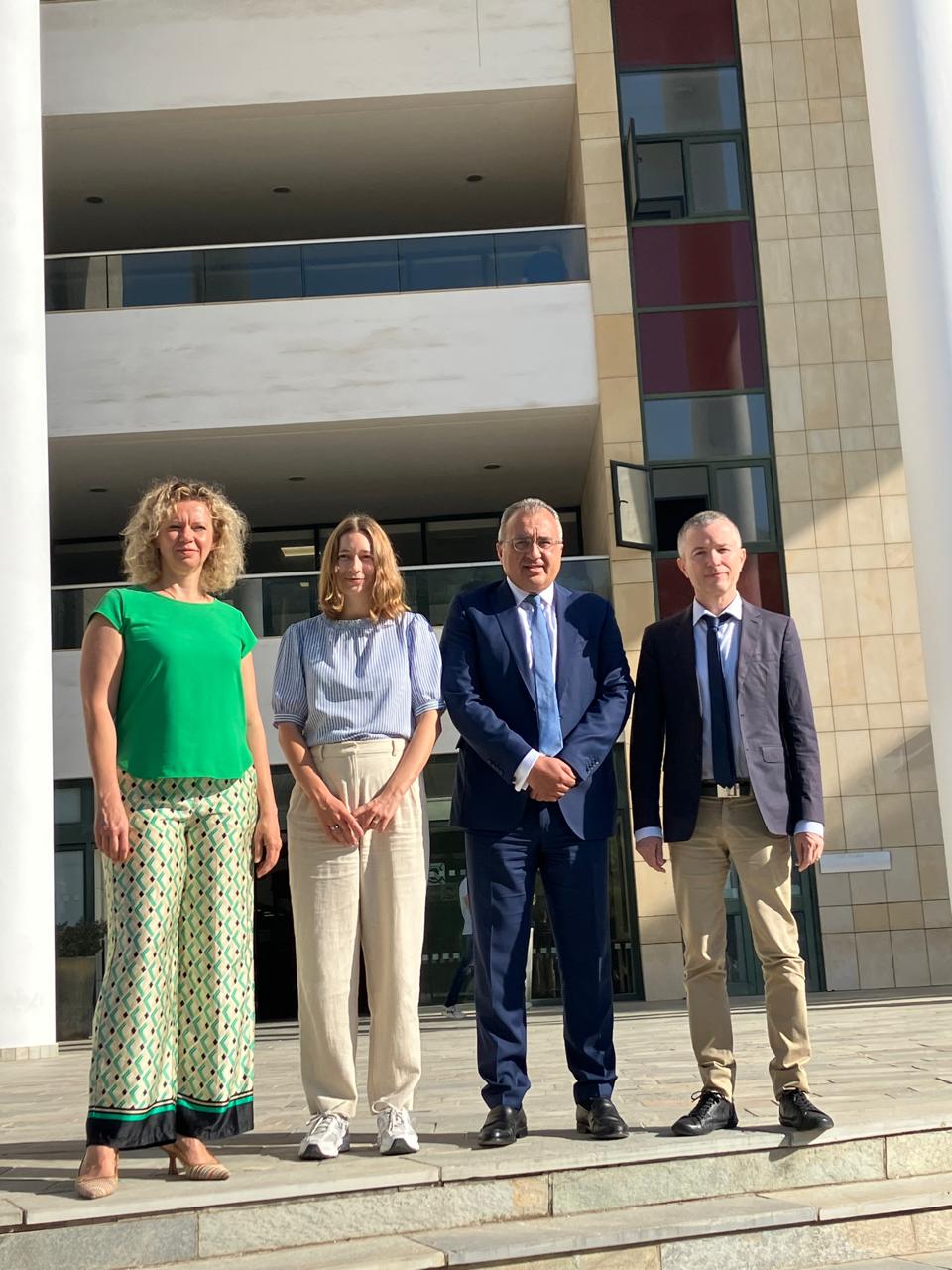Cyprus hailed for reforms but told enforcement must improve
Cyprus has been placed at the centre of Europe’s tax policy debate following a two-day visit by a delegation from the European Parliament’s Subcommittee on Tax Matters (FISC).
The delegation visited Cyprus on September 16 and September 17, meeting with the House Speaker Annita Demetriou, members of the House finance committee, the assistant tax commissioner, as well as leading business and professional associations.
The latter included the Cyprus Chamber of Commerce and Industry (Keve), the Employers and Industrialists Federation (Oev), the Institute of Certified Public Accountants of Cyprus (Selk), and the Cyprus Bar Association.
Their discussions focused on key tax policy issues, including combating tax evasion, simplifying tax systems, and boosting competitiveness through targeted tax measures.
The visit followed the European Parliament’s recent adoption of a report by Cypriot MEP Michalis Hadjipantelas on simplifying the EU’s tax system.
Michalis Hadjipantelas thanked his colleagues for accepting his invitation and expressed his appreciation to the members of the FISC subcommittee for approving his report with a large majority earlier this year.
“The suggestions recorded in Cyprus will be promoted at a European level. Our aim is for Cypriot small and medium-sized enterprises to be freed from unnecessary bureaucracy and to reduce compliance costs in order to strengthen their competitiveness,” the MEP said.
He also welcomed the fact that housing, a pressing issue for many Cypriots, was raised during the discussions.
“The European Union and the Committee on Economic and Monetary Affairs understand our country’s housing challenges, and we will do everything possible to help,” he stated.

Kira Marie Peter-Hansen, the Danish MEP who led the delegation, said that “Cyprus has for many years been at the centre of attention, having facilitated the creation of complex corporate structures that were misused for tax evasion and avoidance.”
“However, we see that there is political will for the country to no longer be the black sheep of Europe,” Peter-Hansen said. “Positive reforms are taking place, following European and international examples.”
“However, legislative changes are not enough if Cyprus does not allocate sufficient resources for enforcement,” she added.
She also expressed concern that “the granting of tax residency without physical presence and the golden visa scheme are still being misused”.
“Cyprus must find the right balance between attracting foreign investment on one hand and combating tax evasion and money laundering on the other.”
Peter-Hansen called the planned tax reform in Cyprus “very interesting” and said the subcommittee had already held many discussions with Cypriot society on the matter.
She welcomed the ambition to increase the corporate tax rate to 15 per cent, in line with OECD and EU policies, and stressed the importance of ensuring that tax reform also addresses housing affordability.
“We want to see its effectiveness in terms of more affordable housing, which is an issue in many European states,” she said.
In addition, she expressed satisfaction with the steps Cyprus has taken to fight tax evasion and avoidance, including the abolition of the golden visa and citizenship schemes, but acknowledged there were still concerns about some investment schemes.
She said she was “confident that Cyprus would proceed with appropriate sanctions and full alignment with EU rules”.
On the Non-Dom regime, Peter-Hansen said “we have discussed it and according to the European Court of Justice there is a positive decision for global access to the ultimate beneficial owners register.”
She explained that access to such registers is no longer possible for third-party owners following the court ruling but said the new rules on anti-money laundering allow access to those with a legitimate interest, including journalists and academics.
Peter-Hansen concluded by saying the FISC subcommittee looks forward to working with the upcoming Cypriot Presidency of the Council of the EU.
“You will have many issues to discuss, such as taxation of tobacco, green taxation, and generally guiding Europe in these turbulent times,” she said.



Christiana Erotokritou, president of the House finance committee, stressed that Cyprus is fully aligned with EU rules on tax evasion and anti-money laundering.
“As the Parliament of the Republic of Cyprus we have explicitly stated that Cypriot legislation on issues arising either from EU directives or from EU regulations concerning tax matters is fully aligned with the entire legal framework of the European Union, especially regarding the rules for avoiding and combating tax evasion and money laundering,” she said.
“Cyprus in recent years has taken huge steps, has taken all necessary measures, and has been reviewed by other organisations which have confirmed that we are fully aligned not only in spirit but in letter and implementation of all EU directives and regulations,” Erotokritou added.
She further stated that discussions with the FISC delegation focused on EU-level tax issues and stressed the need to strengthen competitiveness.
“We emphasised that in any EU-level tax discussion we must keep in mind that the European economy, including Cyprus, must not only remain competitive but its competitiveness must be strengthened,” the
Moreover, Erotokritou underlined the need for tax relief and support for lower-income groups, the middle class, and small and medium-sized enterprises, describing SMEs as the backbone of both the Cypriot and European economy.
She called for more investment in technology, innovation, and research to keep pace with global competition and highlighted the importance of tackling Cyprus’ housing crisis, urging the EU to help citizens secure affordable homes.
On energy, she said that “in Cyprus, the cost of energy is disproportionately higher than in the rest of Europe, partly because of Turkey’s aggressive stance and partly because we are an isolated country relying solely on fossil fuels”.
“This makes the purchase and consumption of electricity and fuel a huge financial burden on Cypriot taxpayers, making their daily lives even more difficult,” she added.
Erotokritou also said that during Cyprus’ upcoming EU Council Presidency, the committee would highlight the major reforms and corrective actions taken in recent years to turn Cyprus into a transparent and fully compliant business and investment destination.
Finally, she expressed hope that dialogue with European partners would continue in order to showcase Cyprus’ progress while finding solutions to pressing issues such as housing and energy costs.






Click here to change your cookie preferences